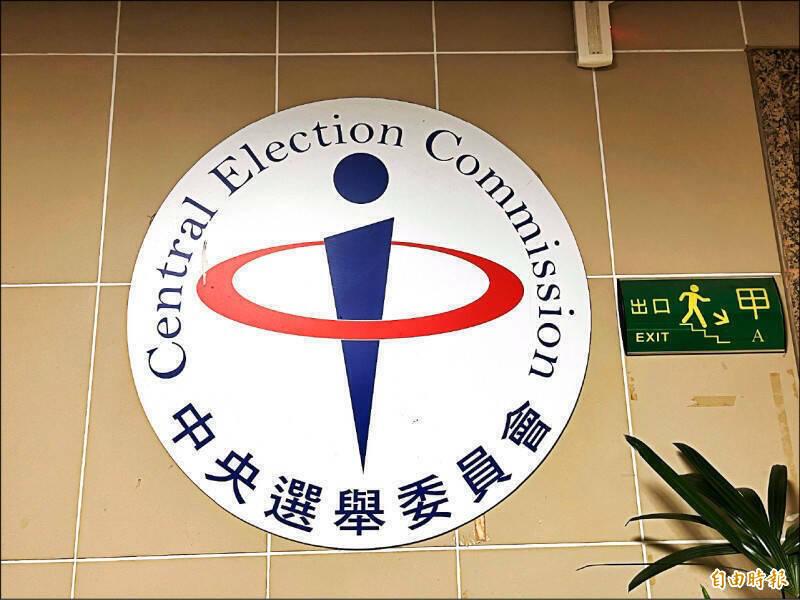Nineteen legislator recall cases passed an initial review and will enter the second-stage petition, while the nine cases that did not reach the threshold in this initial review will have another opportunity for supplementary submissions, the Central Election Commission (CEC) announced today.
The CEC said it has received 64 recall proposals, including 54 cases for lawmakers, one for a city or county mayor and another nine for city or county councilors.

Photo: Taipei Times file photo
The 19 cases that passed the threshold were all against Chinese Nationalist Party (KMT) legislators, and the nine cases that did not reach the threshold were against Democratic Progressive Party (DPP) legislators, people familiar with the matter said.
The 19 KMT lawmakers now facing the second stage of the recall process include KMT caucus whip Fu Kun-chi (傅崐萁), KMT caucus deputy secretary-general Wang Hung-wei (王鴻薇) and legislators Yeh Yuan-chih (葉元之), Yen Kuan-heng (顏寬恒) and Ma Wen-chun (馬文君), sources said.
Suspended Hsinchu Mayor Ann Kao (高虹安) is also said to be among those recall cases that passed the threshold.
The nine DPP lawmakers whose recall proposals failed to meet the first-stage threshold are Wu Pei-yi (吳沛憶), Su Chiao-hui (蘇巧慧), Chang Hung-lu (張宏陸), Wu Chi-ming (吳琪銘), Tsai Chi-chang (蔡其昌), Ho Hsin-chun (何欣純), Chen Kuan-ting (陳冠廷), Saidhai Tahovecahe (伍麗華) and Chen Ying (陳瑩), sources said.
By law, recall proposals must be reviewed by the Central Election Commission within 25 days, meaning that cases submitted on Feb. 3 must be reviewed by tomorrow.
If a proposal meets the threshold requirements, the campaign’s leading proponent collects the petition form from the commission within 10 days of receiving notice, the CEC said.
The recall process has three major stages, the CEC website said. The first stage requires signatures from one percent of total voters in the officials’ electoral district, the second is a petition that must be signed by at least 10 percent of total voters within 60 days and the third is a simple majority vote in which total turnout must be at least 25 percent of total voters in the district.

Taiwan is stepping up plans to create self-sufficient supply chains for combat drones and increase foreign orders from the US to counter China’s numerical superiority, a defense official said on Saturday. Commenting on condition of anonymity, the official said the nation’s armed forces are in agreement with US Admiral Samuel Paparo’s assessment that Taiwan’s military must be prepared to turn the nation’s waters into a “hellscape” for the Chinese People’s Liberation Army (PLA). Paparo, the commander of the US Indo-Pacific Command, reiterated the concept during a Congressional hearing in Washington on Wednesday. He first coined the term in a security conference last

Prosecutors today declined to say who was questioned regarding alleged forgery on petitions to recall Democratic Progressive Party (DPP) legislators, after Chinese-language media earlier reported that members of the Chinese Nationalist Party (KMT) Youth League were brought in for questioning. The Ministry of Justice Investigation Bureau confirmed that two people had been questioned, but did not disclose any further information about the ongoing investigation. KMT Youth League members Lee Hsiao-liang (李孝亮) and Liu Szu-yin (劉思吟) — who are leading the effort to recall DPP caucus chief executive Rosalia Wu (吳思瑤) and Legislator Wu Pei-yi (吳沛憶) — both posted on Facebook saying: “I

The Ministry of Economic Affairs has fined Taobao NT$1.2 million (US$36,912) for advertisements that exceed its approved business scope, requiring the Chinese e-commerce platform to make corrections in the first half of this year or its license may be revoked. Lawmakers have called for stricter enforcement of Chinese e-commerce platforms and measures to prevent China from laundering its goods through Taiwan in response to US President Donald Trump’s heavy tariffs on China. The Legislative Yuan’s Finance Committee met today to discuss policies to prevent China from dumping goods in Taiwan, inviting government agencies to report. Democratic Progressive Party Legislator Kuo Kuo-wen (郭國文) said

The Ministry of Economic Affairs has fined Taobao NT$1.2 million (US$36,900) for advertisements that exceeded its approved business scope and ordered the Chinese e-commerce platform to make corrections in the first half of this year or its license would be revoked. Lawmakers have called for stricter supervision of Chinese e-commerce platforms and more stringent measures to prevent China from laundering its goods through Taiwan as US President Donald Trump’s administration cracks down on origin laundering. The legislature’s Finance Committee yesterday met to discuss policies to prevent China from dumping goods in Taiwan, inviting government agencies to report on the matter. Democratic Progressive Party